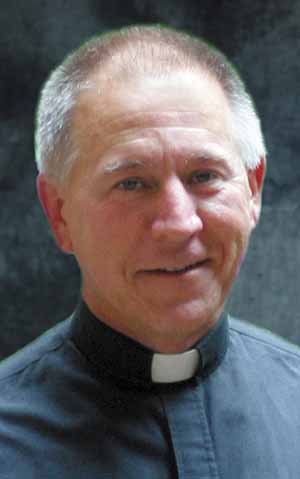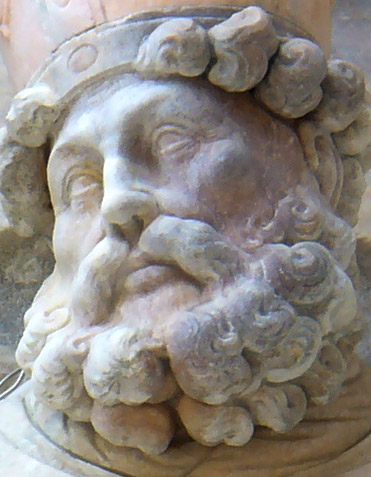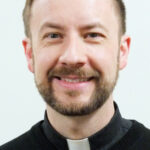By Bud Grant
SAU Theological Perspective Series
What do I love about St. Ambrose of Milan?
A friend of mine once asked that question of a nun of the Monastero Romite Ambrosiane in Varese, Italy. After a false start and some consideration, she said that she loved Ambrose’s “equilibrio” (balance). Instantly, that became my favorite Italian word. This is the first thing I love about him. Ambrose maintained his sense of balance even though he had been made bishop of Milan on Dec.

7, 374, very much against his will and with no prior training; even though it meant having to surrender his vast wealth, his political aspirations and his hopes for a family; and even though as bishop of an imperial city he was often thrown into political situations that could have led to his death or exile at the hands of one or another angry Roman Emperor.
Why’d he do it, then? Most simply, he deemed it his duty to do “that which is fitting and virtuous” measured only by that which “will help us to the blessings of Eternal Life.” He was not interested in the “conveniences of life, wealth, possessions, or advantages.” The lesson: doing his duty is its own reward.
Another thing I love about Ambrose is that he had the courage of his convictions to speak truth to power. In a private letter to Emperor Theodosius, who had just committed a horrible atrocity, Ambrose asks, “should I keep silence? But then my conscience would be bound … and if the priest doesn’t address one who errs, that one will die in sin and the priest will also be guilty.” This was not political bombast meant to divide or shame. It was done quietly, privately and out of love. “I follow you with my love, affection, and prayers. If you believe me, be guided by me, if not, pardon me for preferring God even to you.” The second lesson: challenging those with whom we disagree must be done out of love for them, not out of self-righteousness.

The most common image of Ambrose is of a stern prelate who drives away evil ones with a whip or who bars a recalcitrant emperor from entering a church. He is otherwise depicted as a ponderously bearded and furrow-browed grump with a book, perhaps not the best branding for an academic.
Worse, these odd or bland images miss the thing I love most about Ambrose. In the church of Sant’ Ambrogio della Massima in Rome is a painting of Ambrose by Ambrogio Fumagalli (circa 1953-87). It shows Ambrose ministering to a young child. This is the only image of Ambrose’s mercy that I have ever seen but it is most evocative of the essence of Ambrose. He believed that his primary duties were, first, as a servant of the vulnerable by providing food, shelter, funds, health care and security. “The Church has gold,” he insisted, “not to store it up, but to lay it out and to spend on those in need.” Second, he was an advocate for the marginalized — even at risk of alienating the rich and powerful —calling out structural injustice by insisting that the poor are “sharers in common with you in the produce of nature, which brings forth the fruits of the earth for the use of all.”
In his book “Cathonomics,” Anthony Annett shows Ambrose to be among the very early episcopal voices for Catholic social, economic and environmental justice. He shows how Ambrose’s concern for the marginalized and the earth has influenced popes from Leo XIII’s “Rerum Novarum” in 1891 to Francis’ “Laudato Si” in 2015.
The third lesson? I’ll give Ambrose the last words. “Nothing graces the Christian soul so much as mercy, especially as shown towards the poor. … It is a very great incentive to mercy to share in others’ misfortunes, to help the needs of others as far as our means allow, and sometimes even beyond them. … Mercy never fails, but always finds a means of being helpful. …You dedicate yourself to the Lord that you might gain eternal life by the fruit of good works and atone for your sins by showing mercy.”
(Father Bud Grant is a theology professor at St. Ambrose University in Davenport and director of the Academy for the Study of St. Ambrose of Milan. He also is sacramental minister of St. Andrew Parish in Blue Grass and St. Mary Parish in Wilton.)











